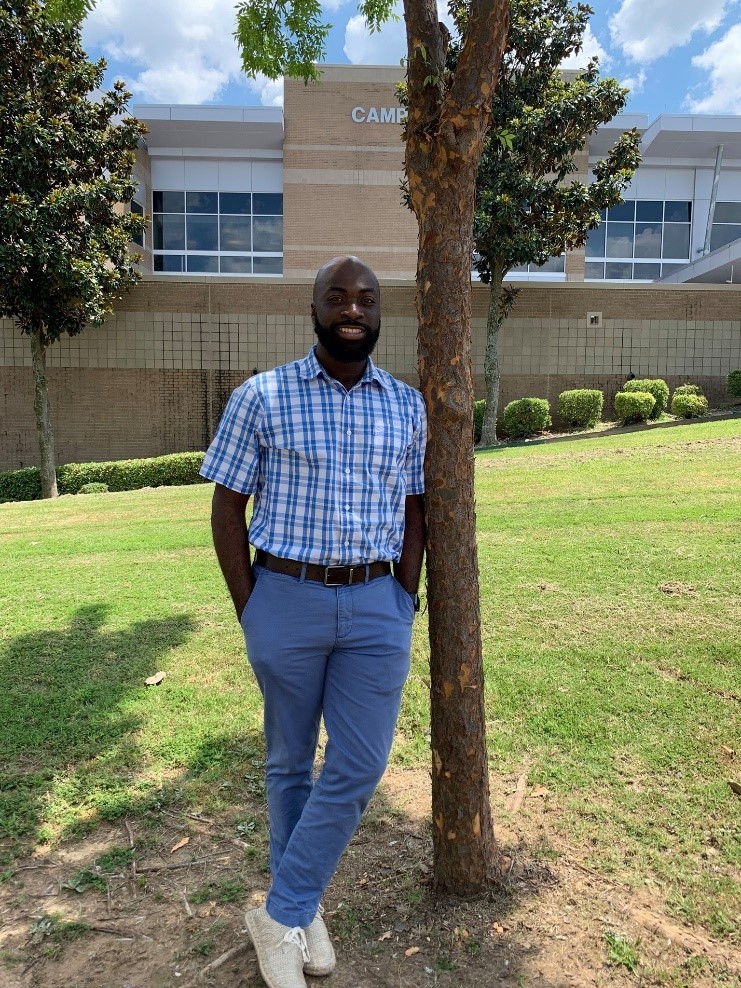
Calvin Kirklin is an alumnus of the National Board for Certified Counselor’s MFP Program and received his M.S. in clinical mental health counseling in 2017. He is currently working on his Ph.D. in counselor education and supervision at the University of the Cumberlands in Kentucky. After he completes his Ph.D. program, he hopes to become the director of a university counseling center and facilitate the training of clinicians working with African American students.
Calvin was drawn to the MFP program when he noticed a lack of care in his hometown. Growing up in Pine Bluff, Arkansas, he saw many people who needed mental health or substance abuse treatment but were unable to find it. He wanted to make a difference and wanted “…to be a resource and a help for not only my community, [but] for all communities that are mainly made up of minorities.” Once he entered graduate school, he learned about the MFP program and, after doing some research, realized that it would help him reach his goals.
When asked how the MFP program has benefited his career, Calvin noted the financial and peer support as being particularly helpful. He explained that the people he met while in the program “…made an everlasting impact on [his] life,” and even helped convince him to pursue his Ph.D. He further explained that the mentorships and connections you make along the way are crucial, and he is thankful for those he made while in the program, attributing those relationships to his current success in the field.
Since graduating from the MFP program, Calvin has found numerous ways to integrate the knowledge and experiences he gained. He is currently the primary mental health counselor at the University of Arkansas – Pulaski Technical College and works to be “an advocate for racially and ethnically diverse individuals seeking out counseling.” While there are still not enough counselors of color, he is now able to help “create an environment where minority students feel comfortable and safe seeking out counseling, because he looks like them.” Calvin plans to continue this work and has prioritized the reduction of health disparities for minority populations.
As a final note to anyone who is considering applying for the program, Calvin encourages everyone to apply despite what anyone else might say. He says, “Do not let anyone stop you from applying and do not get discouraged. The fellowship was truly a blessing and an experience of a lifetime. I was able to meet wonderful people who are making an impact on the counseling profession, and they look like me.”